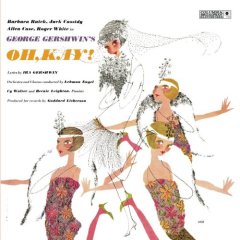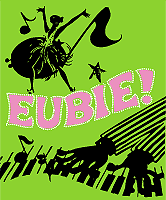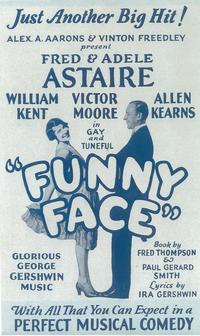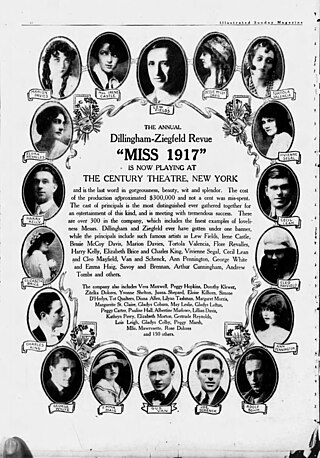
George Gershwin was an American composer and pianist whose compositions spanned popular, jazz and classical genres. Among his best-known works are the orchestral compositions Rhapsody in Blue (1924) and An American in Paris (1928), the songs "Swanee" (1919) and "Fascinating Rhythm" (1924), the jazz standards "Embraceable You" (1928) and "I Got Rhythm" (1930), and the opera Porgy and Bess (1935), which included the hit "Summertime".

Ira Gershwin was an American lyricist who collaborated with his younger brother, composer George Gershwin, to create some of the most memorable songs in the English language of the 20th century. With George, he wrote more than a dozen Broadway shows, featuring songs such as "I Got Rhythm", "Embraceable You", "The Man I Love", and "Someone to Watch Over Me". He was also responsible, along with DuBose Heyward, for the libretto to George's opera Porgy and Bess.

James Hubert "Eubie" Blake was an American pianist and composer of ragtime, jazz, and popular music. In 1921, he and his long-time collaborator Noble Sissle wrote Shuffle Along, one of the first Broadway musicals written and directed by African Americans. Blake's compositions included such hits as "Bandana Days", "Charleston Rag", "Love Will Find a Way", "Memories of You" and "I'm Just Wild About Harry". The 1978 Broadway musical Eubie! showcased his works, and in 1981, President Ronald Reagan awarded Blake the Presidential Medal of Freedom.
This is a list of notable events in music that took place in the year 1921.
This is a list of notable events in music that took place in the year 1919.

Noble Lee Sissle was an American jazz composer, lyricist, bandleader, singer, and playwright, best known for the Broadway musical Shuffle Along (1921), and its hit song "I'm Just Wild About Harry".

Girl Crazy is a 1930 musical by George Gershwin with lyrics by Ira Gershwin and book by Guy Bolton and John McGowan. Ethel Merman made her stage debut in the first production and co-lead Ginger Rogers became an overnight star. Rich in song, it follows the story of Danny Churchill who has been sent to fictional Custerville, Arizona, to manage his family's ranch. His father wants him there to focus on matters more serious than alcohol and women but Danny turns the place into a dude ranch, importing showgirls from Broadway and hiring Kate Forthergill as entertainer. Visitors come from both coasts and Danny falls in love with the local postmistress, Molly Gray.

Oh, Kay! is a musical with music by George Gershwin, lyrics by Ira Gershwin, and a book by Guy Bolton and P. G. Wodehouse. It is based on the play La Présidente by Maurice Hennequin and Pierre Veber. The plot revolves around the adventures of the Duke of Durham and his sister, Lady Kay, English bootleggers in Prohibition Era America. Kay finds herself falling in love with a man who seems unavailable. The show is remembered for its enduring song, "Someone to Watch Over Me".

Shuffle Along is a musical composed by Eubie Blake, with lyrics by Noble Sissle and a book written by the comedy duo Flournoy Miller and Aubrey Lyles. One of the most notable all-Black hit Broadway shows, it was a landmark in African-American musical theater, credited with inspiring the Harlem Renaissance of the 1920s and '30s.

African-American musical theater includes late 19th- and early 20th-century musical theater productions by African Americans in New York City and Chicago. Actors from troupes such as the Lafayette Players also crossed over into film. The Pekin Theatre in Chicago was a popular and influential venue.

Eubie! is a revue featuring the jazz and ragtime music of composer Eubie Blake, with lyrics by Noble Sissle, Andy Razaf, Johnny Brandon, F. E. Miller, and Jim Europe. The revue features no book, simply showcasing 23 of Eubie Blake's popular songs. The show was conceived by Julianne Boyd and opened in 1978, receiving positive reviews from Time, Newsweek, Variety, Backstage, and The Today Show.

Funny Face is a 1927 musical composed by George Gershwin, with lyrics by Ira Gershwin, and book by Fred Thompson and Paul Gerard Smith. When it opened on Broadway on November 22, 1927, as the first show performed in the newly built Alvin Theatre, it starred Fred Astaire and his sister Adele Astaire. It was in this show that Astaire first danced in evening clothes and a top hat.

Tip-Toes is a musical with a book by Guy Bolton and Fred Thompson, lyrics by Ira Gershwin, and music by George Gershwin. It centers on a vaudeville act composed of Tip-Toes, her brother and her uncle, who try to pass her off as an aristocrat to snare a millionaire husband. Farcical complications ensue involving Tip-Toes' temporary amnesia and a marital infidelity subplot.

"I'm Just Wild About Harry" is a song written in 1921 with lyrics by Noble Sissle and music by Eubie Blake for the Broadway show Shuffle Along.
Frederick J. Jackson, also known professionally as Fred Jackson and Frederick Jackson and under the pseudonym Victor Thorne, was an American author, playwright, screenwriter, novelist, and producer for both stage and film. A prolific writer of short stories and serialized novels, most of his non-theatre works were published in pulp magazines such as Detective Story Magazine and Argosy. Many of these stories were adapted into films by other writers.

La La Lucille is a musical with a book by Fred Jackson, primary lyrics by Arthur J. Jackson and Buddy DeSylva, additional lyrics by Lou Paley and Irving Caesar, and music by George Gershwin.

Frederick A. Thompson, usually credited as Fred Thompson was an English writer, best known as a librettist for about fifty British and American musical comedies in the first half of the 20th century. Among the writers with whom he collaborated were George Grossmith Jr., P. G. Wodehouse, Guy Bolton and Ira Gershwin. Composers with whom he worked included Lionel Monckton, Ivor Novello and George Gershwin.

Miss 1917 is a musical revue with a book by Guy Bolton and P. G. Wodehouse, music by Jerome Kern, Victor Herbert and others, and lyrics by Harry B. Smith, Otto Harbach, Henry Blossom and others. Made up of a string of vignettes, the show features songs from such musicals as The Wizard of Oz, Three Twins, Babes in Toyland, Ziegfeld Follies and The Belle of New York.
Vinton Freedley was an American theater and television producer known for his productions of the works of Cole Porter, George Gershwin, Richard Rodgers and television shows such as Talent Jackpot and Showtime U.S.A..

Shuffle Along, or, the Making of the Musical Sensation of 1921 and All That Followed is a musical with a score by Eubie Blake and Noble Sissle and a libretto by George C. Wolfe, based on the original book of the 1921 musical revue Shuffle Along, by Flournoy Miller and Aubrey Lyles. The story focuses on the challenges of mounting the original production of Shuffle Along and its effect on Broadway and race relations.
















